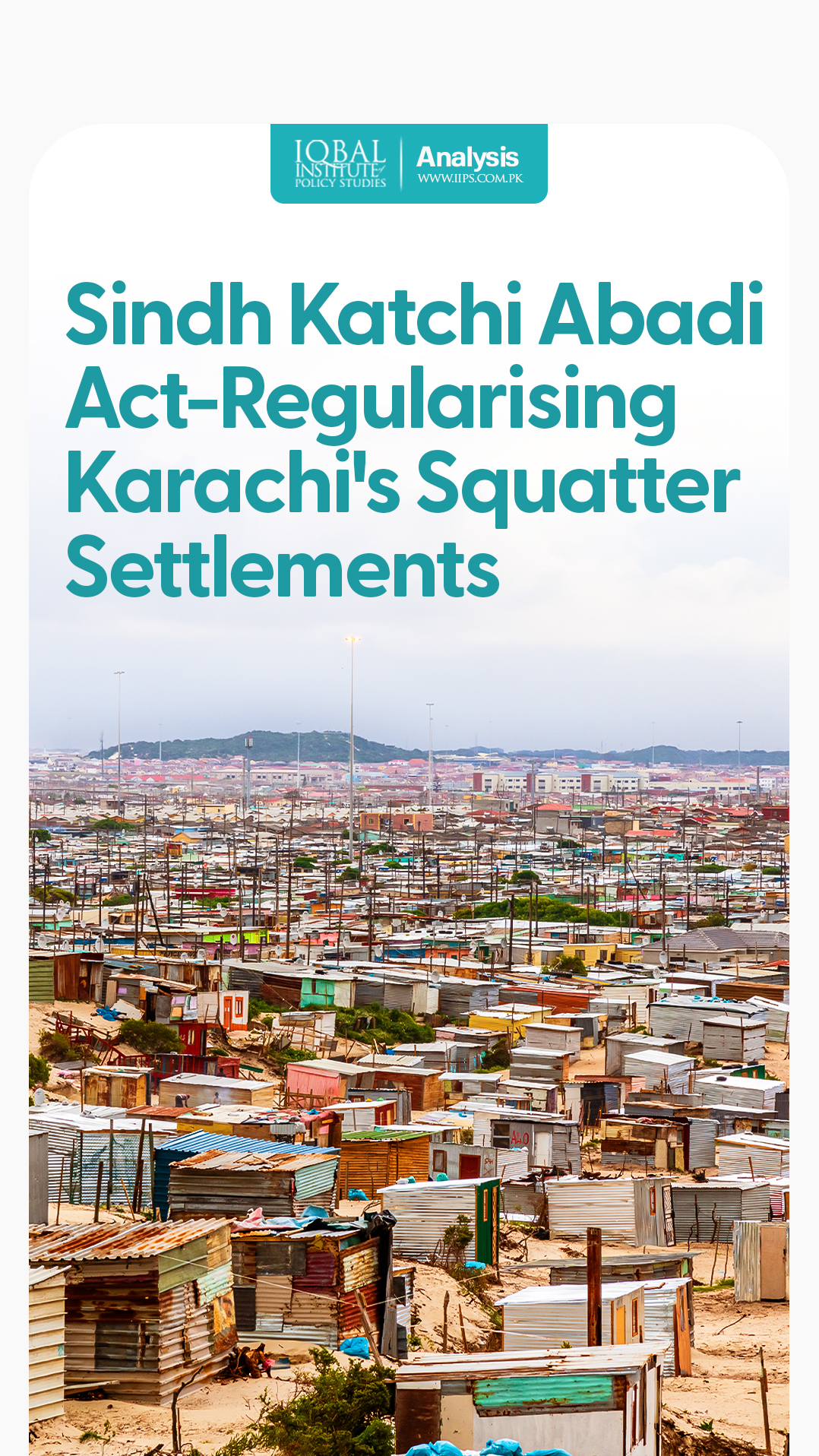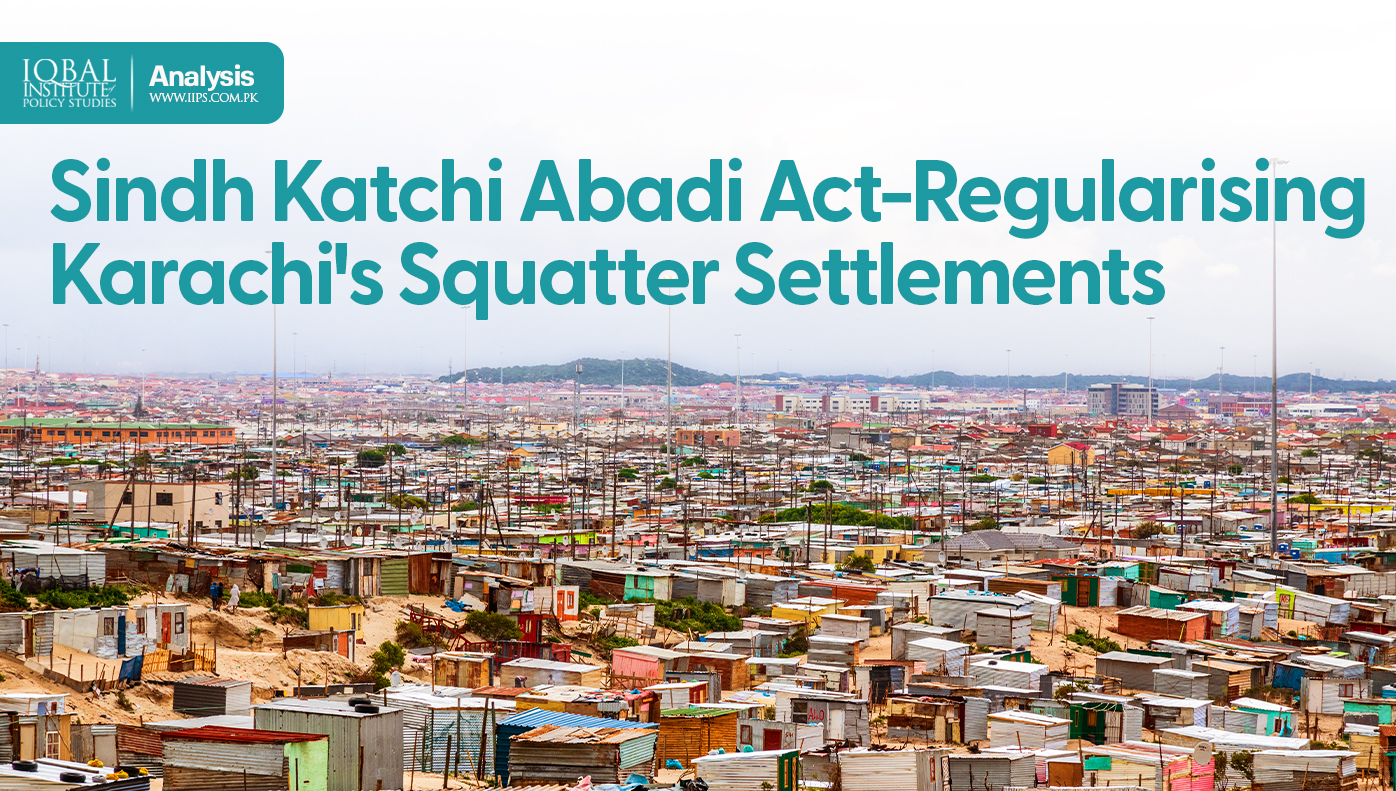The Sindh Katchi Abadi Act was established in 1987, with a vision to regularise, improve, upgrade, and resettle pre-1985 Katchi Abadis. It focuses on community planning, housing, low-cost housing, and amelioration. It intends to provide community facilities, including, water supply, sewerage disposal, and other public utilities to the residents of slums and Katchi Abadis. Its main objective is to avoid the proliferation of slums, provide better living opportunities to the deserving, and retrieve government land for future urban planning.
Slums, illegal dwellings, and squatter settlements are growing as city planners and city managers continue to struggle with the massive urbanisation trend. They provide an unsustainable form of housing. Access to services like sanitation, health care, formal employment, and proper shelter are major challenges faced by slum dwellers in urban areas. According to the World Bank report 2020, almost 1 in 7 people living in cities are slum dwellers. These settlements are populated by people belonging to the lowest-income segment of the society. Additionally, residents of slums also form a major part of the informal economy.
The Provincial Assembly has decided to amend the Sindh Katchi Abadis Act to extend the cut-off date for regularising katchi abadis in the province from June 30, 1997, to Dec 31, 2011. Under this regularisation criteria, settlements that are in existence on or before June 30, 1997, will be regularised to provide relief to dwellers. Also, low-cost housing schemes have been approved for the poor and affected of anti-encroachment drives. The government also launched Sasti Basti schemes at different locations in Sindh. However, there is still a need for innovation and the adoption of technologies that can replace slum dwellings and create decent houses for the slum population.



Leave a Reply